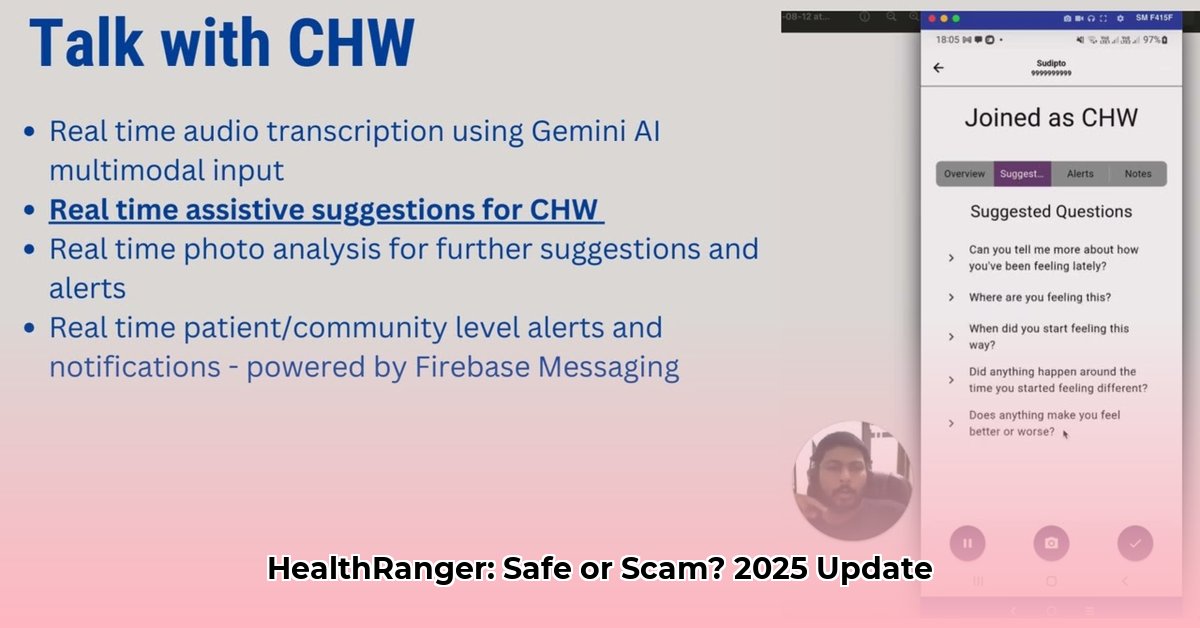
HealthRanger: Navigating the Complexities of the Supplement World
The health supplement market is booming, fueled by a growing desire for natural health solutions. This surge in demand, however, has unfortunately coincided with an increase in misinformation and misleading marketing tactics. HealthRanger, a prominent player in this landscape, presents a compelling case study in the challenges of navigating the supplement industry. This review analyzes HealthRanger’s practices, exploring both its positive contributions and significant concerns regarding misinformation.
Transparency and Bioavailability: The Positive Aspects
HealthRanger emphasizes third-party testing for many of its products, checking for contaminants like heavy metals and glyphosate. This commitment to transparency is a crucial step in building consumer trust in an industry often criticized for a lack of accountability. Furthermore, HealthRanger focuses on bioavailability – how efficiently the body absorbs nutrients – employing formulations like liposomal glutathione designed for enhanced absorption. This focus on efficacy, while needing further independent verification, is a positive aspect that many consumers value. However, to what extent does this focus on bioavailability outweigh the risks associated with other aspects of their business?
Misinformation and Unproven Claims: Serious Concerns
Despite the positive aspects, HealthRanger has a history of disseminating misinformation, most notably its involvement in the "measles hoax." This spread of false information represents a significant ethical and public health concern. Many of their product claims lack robust scientific evidence to support them. Marketing materials often showcase anecdotal evidence or interpret scientific studies in a way that isn't supported by the original research. This lack of rigorous, peer-reviewed scientific backing raises questions about the validity of these claims and the potential for harm to consumers who rely on HealthRanger's information. How can consumers discern fact from fiction when information is presented in such a biased manner?
The Regulatory Gap: A Looming Problem
The supplement industry suffers from a significant lack of robust regulatory oversight. This gap allows for the proliferation of unsubstantiated health claims and potentially harmful products. The absence of strong guidelines for labeling, testing, and marketing practices creates a breeding ground for misinformation. This regulatory deficiency significantly impacts consumer safety and necessitates a greater emphasis on personal responsibility and critical evaluation of product claims. How can we effectively bridge this regulatory gap and ensure consumer protection in the supplement market?
Protecting Yourself: A Consumer's Guide to Navigating the Supplement Market
To protect yourself from misinformation and make informed decisions, follow these steps:
- Verify Sources: Before trusting any health claim, verify the information from multiple independent and reputable sources. Look for peer-reviewed studies published in scientific journals.
- Examine Labels Carefully: Pay close attention to the list of ingredients, their quantities, and any certifications (e.g., USP, NSF International).
- Seek Independent Testing Results: Consult websites like ConsumerLab.com and Labdoor for unbiased reviews and quality evaluations.
- Consult Healthcare Professionals: Discuss supplement use with your doctor or a registered dietitian to assess potential risks and interactions with medications.
- Report Suspicious Activities: If you encounter misleading or potentially harmful claims, report them to the relevant authorities.
HealthRanger: A Balanced Perspective
The following table summarizes the key aspects of HealthRanger, highlighting both advantages and disadvantages:
| Feature | Pros | Cons |
|---|---|---|
| Third-Party Testing | Enhances transparency and builds consumer confidence where applicable. | Not all products undergo rigorous testing; inconsistency in testing standards. |
| Bioavailability Focus | Emphasizes efficient nutrient utilization. | Potential for exaggerated claims unsupported by evidence. |
| Product Range | Wide variety of supplements available. | Many products lack sufficient scientific validation of health claims. |
| Information Dissemination | Provides information (but quality highly variable). | Dissemination of misinformation and unverified health claims. |
The Urgent Need for Responsible Consumption & Stronger Regulation
HealthRanger serves as a case study illustrating the complexities of the supplement industry. While some practices, such as emphasizing third-party testing, are commendable, the dissemination of misinformation and questionable product claims highlight the need for both more responsible consumer behavior and stronger regulatory measures. Consumers must exercise caution, verify claims independently, and demand greater transparency from supplement manufacturers. Simultaneously, strengthening regulatory frameworks is crucial to mitigate the risks associated with misinformation and protect public health. The future of the supplement industry hinges on a collaborative effort to prioritize evidence-based practices and consumer safety.